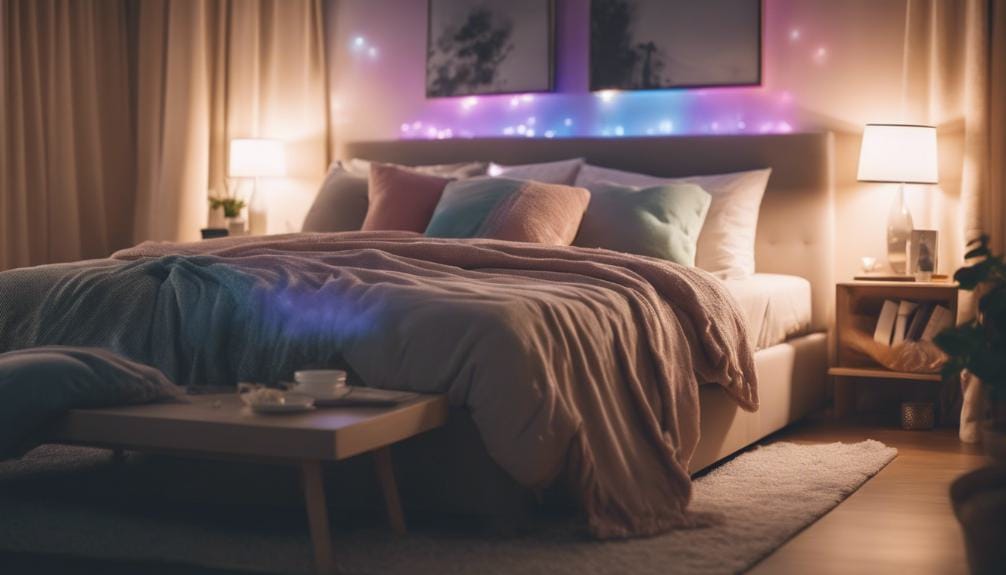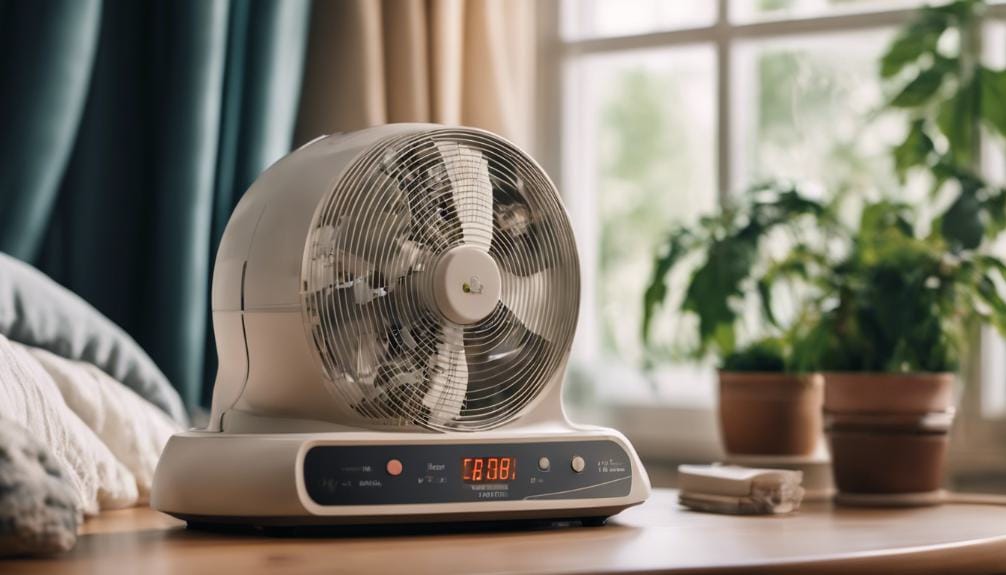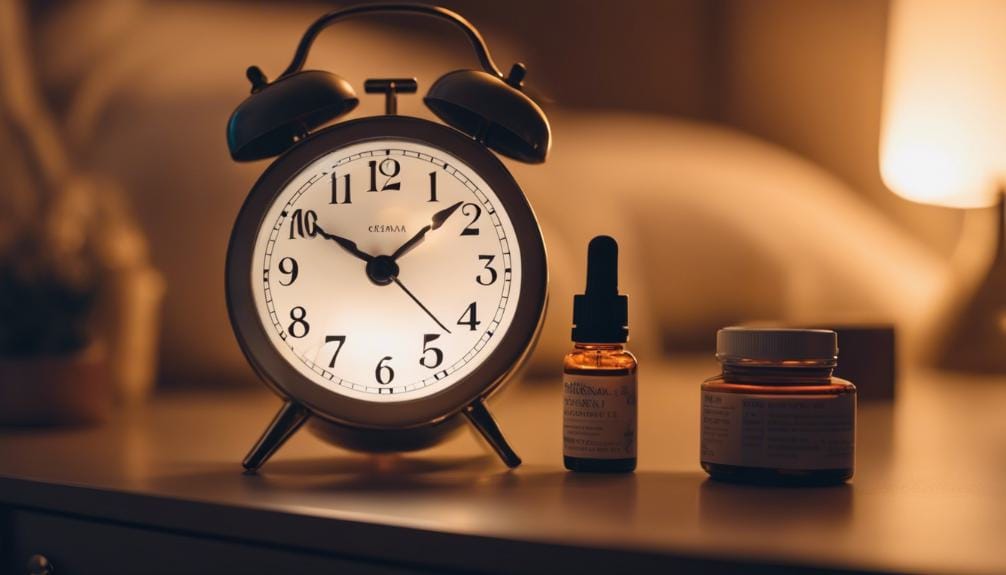How to Sleep Better at Night Naturally: Expert Tips Revealed
To sleep better at night naturally, start by choosing a supportive mattress that aligns your spine and reduces pressure points. Opt for bedding like cotton or linen for airflow, keeping you cool and improving sleep quality. Find the right pillow that supports your neck and aligns with your preferences. Create a sleep-friendly environment with a cool temperature and dim lights. Control noise and light levels for a peaceful rest. Address health factors, establish a consistent routine, and incorporate relaxation techniques. These tips can transform your nights. Further tips await for enhancing your quality of sleep.
Choose a Supportive Mattress
When selecting a supportive mattress, prioritize maintaining proper spine alignment and reducing pressure points to enhance your sleep quality.
A mattress with good support can help alleviate back pain and improve overall sleep quality by ensuring your spine stays in a neutral position.
This can also reduce discomfort and tossing and turning during the night, allowing you to sleep more soundly regardless of your preferred sleep position.
Opt for Breathable Bedding
To further enhance your sleep quality and comfort, consider upgrading to breathable bedding options like cotton or linen for improved airflow and temperature regulation throughout the night.
- Cotton and linen sheets promote airflow.
- Prevent overheating for a cool sleep experience.
- Enhance sleep quality by reducing night sweats and discomfort.
Find the Right Pillow

When it comes to getting a good night’s sleep, your pillow plays an essential role in supporting your neck and ensuring comfort.
The material, size, and firmness of your pillow all contribute to how well you rest.
Take the time to find the right pillow that aligns with your sleep preferences for a more rejuvenating slumber.
Pillow Material Matters
Wondering which pillow material is best for your sleep needs and preferences?
When selecting the right pillow, consider memory foam for excellent support and alignment, latex for durability and natural cooling, and down for a soft, luxurious feel.
Each material offers unique benefits, so choose based on your desired level of support, alignment, and comfort for a restful night’s sleep.
Support for Neck
Choosing the appropriate pillow that suits your sleep position is essential for ideal neck support and alignment. The right pillow support can help align your neck with your body, promoting comfortable sleep.
Consider adjusting the loftiness of your pillow based on whether you sleep on your back, side, or stomach. Using a pillow between your knees while side sleeping can also provide lower back support and reduce strain on your hips, ensuring a more restful night’s sleep.
Size and Firmness
To ensure excellent support and comfort for a restful night’s sleep, choosing the correct size and firmness of your pillow is essential. When selecting a pillow, consider the following:
- Pillow Size: Match it to your body frame and bed size.
- Firmness: Align it with your sleep position for proper spinal alignment.
- Memory Foam or Adjustable Pillows: Opt for these to customize support for a good night’s sleep.
Create a Sleep-Friendly Environment

For ideal sleep quality, make sure your bedroom environment is conducive to relaxation and rest by controlling factors like light, temperature, humidity, and noise levels.
Maintain a cool bedroom temperature around 65°F, dim the lights before bedtime, and use blackout shades to block out external light disturbances.
These adjustments can enhance your sleep hygiene, regulate body temperature, and create a soothing sleep environment for improved sleep duration.
Control Light and Noise Levels
To improve your sleep quality naturally, consider dimming lights in the evening to signal your body that it’s time to wind down.
Creating a quiet environment by minimizing external noise can help you relax and fall asleep faster.
Dim Lights for Sleep
How can dimming lights in your bedroom positively impact your quality of sleep?
- Dim lights signal the brain to produce melatonin, aiding sleep quality.
- Bright lights disrupt circadian rhythm and melatonin production, hindering natural sleep onset.
- Controlling light levels fosters a sleep-conducive environment, enhancing relaxation for restful sleep.
Utilizing blackout shades or sleep masks can effectively block external light, ensuring undisturbed, restorative sleep.
Quiet Environment Essential
Dimming lights in your bedroom facilitates the production of melatonin, contributing to better sleep quality.
Now, let’s address the importance of maintaining a quiet environment to further enhance your sleep.
Control noise disturbances using earplugs or white noise machines to prevent disruptions that can affect your circadian rhythm.
Noise levels above 30-40 decibels can hinder your ability to fall asleep, impacting your overall sleep quality.
Maintain Ideal Temperature and Humidity

Maintaining the ideal temperature and humidity in your bedroom is essential for promoting deeper and more restful sleep. To create a sleep-friendly environment, aim for a bedroom temperature of 65-68°F (18-20°C).
Keep humidity levels at the best level to enhance comfort. Lower temperatures can trigger your body’s natural sleep response, leading to improved sleep quality.
Adjusting these factors can help you achieve a cozy and relaxing atmosphere for a good night’s rest.
Utilize Technology Wisely
By incorporating smart technology into your sleep routine, you can optimize your bedroom environment for improved rest and relaxation. Use white noise machines or sleep-friendly apps to mask disruptive sounds and promote a soothing sleep atmosphere.
Smart home devices can help regulate bedroom temperature, lighting, and noise levels. Consider wearable sleep trackers to monitor sleep patterns, and explore light therapy devices for better circadian rhythm management.
Practice Relaxation Techniques

To enhance your sleep quality naturally, consider incorporating relaxation techniques into your bedtime routine. Try these methods to help you sleep well:
- Practice deep breathing exercises to lower heart rate and prepare your body for rest.
- Engage in progressive muscle relaxation to reduce tension and promote relaxation.
- Utilize guided imagery, mindfulness meditation, or yoga to calm your mind and body for a peaceful night’s sleep.
Address Health Factors
When it comes to enhancing your sleep naturally, addressing underlying health factors is vital. Health conditions like sleep apnea can greatly impact your sleep quality, so seeking medical intervention is essential.
Consulting a healthcare provider to identify and treat any health issues affecting your sleep can pave the way for better rest.
Lifestyle Choices Impact
Making conscious decisions about your lifestyle can greatly influence how well you sleep naturally. Consider these key points:
- Diet: Eating habits impact sleep quality. Avoid heavy meals before bed.
- Exercise: Regular physical activity promotes better sleep. Engage in activities you enjoy.
- Stress Management: High stress levels can disrupt sleep patterns. Try relaxation techniques like deep breathing or meditation.
Health Conditions Influence
Consider addressing health factors that can impact your sleep quality, particularly those related to underlying health conditions such as sleep apnea.
Conditions like sleep apnea and circadian rhythm disorders can lead to poor sleep. Seeking medical advice is crucial to uncover underlying factors contributing to sleep disturbances.
If consistent poor sleep affects you, consult a healthcare provider promptly. Professional guidance can help identify and manage health conditions that may be disrupting your sleep.
Establish a Consistent Sleep Routine

Establishing a regular sleep schedule can greatly enhance your overall sleep quality and help regulate your body’s internal clock. To improve your sleep routine:
- Consistently go to bed and wake up at the same times daily.
- Follow a bedtime routine to signal your body it’s time to wind down.
- Maintain this consistency to promote natural waking up and reduce disruptions to your circadian rhythm.
Frequently Asked Questions
What Is the 10 3 2 1 0 Rule for Sleep?
To improve sleep, follow the 10 3 2 1 0 rule: cut caffeine 10 hours before bed, stop eating and drinking alcohol 3 hours prior, end work 2 hours before, ditch screens 1 hour before, and resist hitting snooze.
How Can I Sleep Better at Night Naturally?
To sleep better at night naturally, engage in relaxing activities before bed, create a sleep-conducive environment, avoid screens, establish a bedtime routine, and eat sleep-friendly foods. These habits signal your body for sleep, improving sleep patterns over time.
What Are 3 Techniques to Get Better Sleep Each Night?
To get better sleep each night, try establishing a bedtime routine, avoiding screens before bed, and creating a calm sleep environment. Consistency, relaxation techniques, and sleep-promoting foods like bananas can help you improve your sleep quality naturally.
What Is the Secret to Sleeping Through the Night?
Create a calming pre-sleep routine to signal your body for rest. Maintain a cool, dark, quiet sleep environment. Stick to consistent sleep patterns. Avoid late-night eating, limit screen time, manage stress. Address underlying issues for uninterrupted sleep naturally.
Conclusion
To sum up, enhancing your sleep quality naturally involves straightforward yet impactful steps like:
- Selecting the appropriate mattress, bedding, and pillow,
- Setting up a calming sleep environment, and
- Maintaining a regular bedtime routine.
By focusing on these aspects and looking after your general well-being, you can significantly improve the quality of your sleep and wake up feeling rejuvenated and invigorated.
Therefore, incorporate these changes into your bedtime routine and begin experiencing improved sleep tonight!
